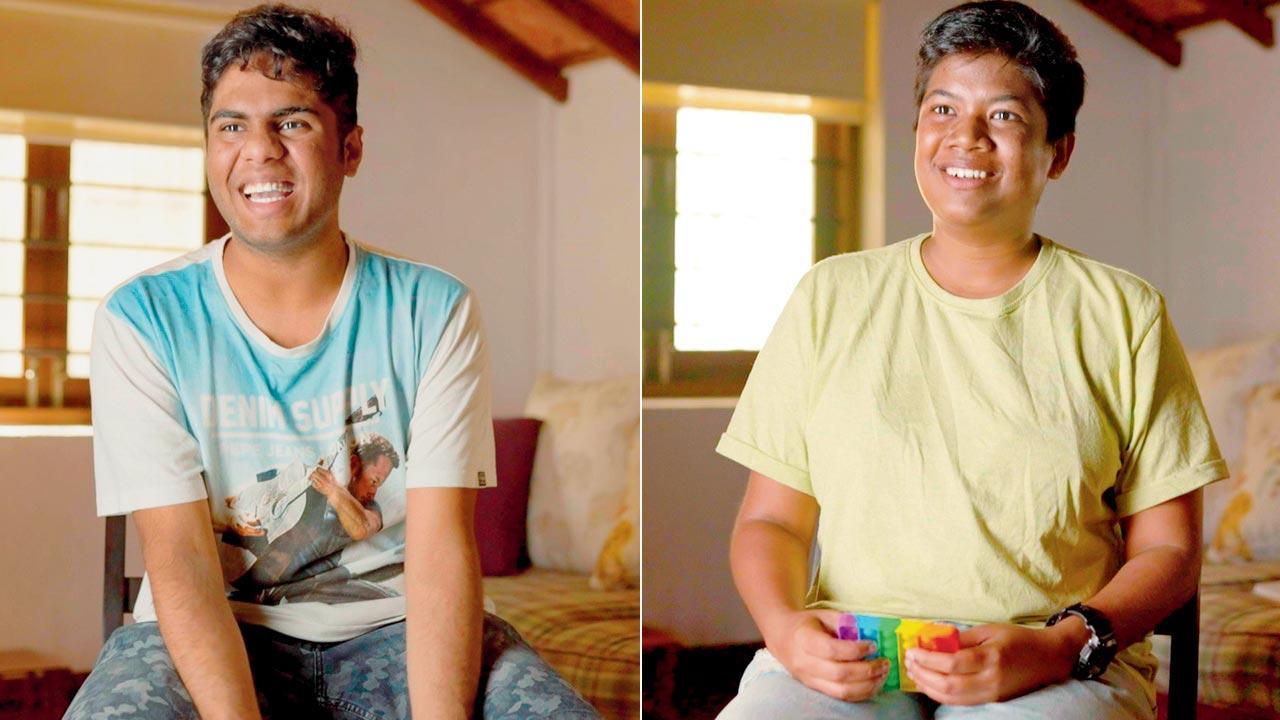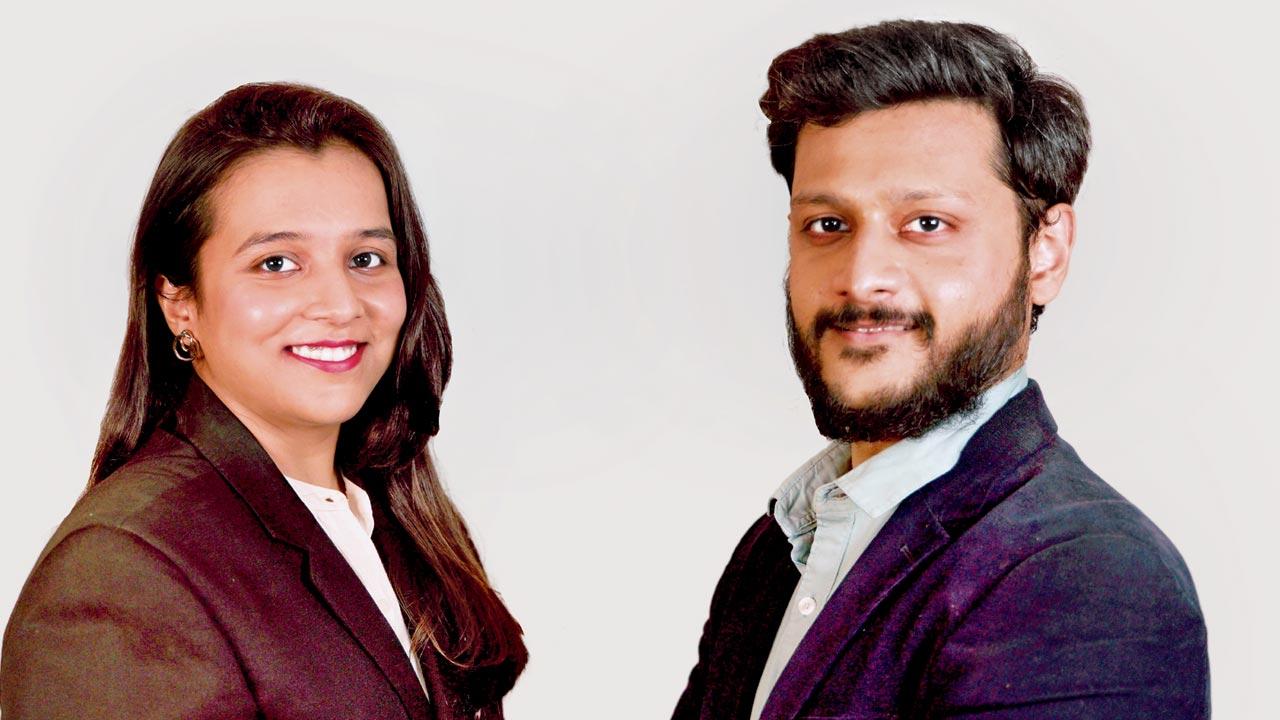A filmmaker couple’s film on autism and intersectionality is reaching international grounds for apt representation

The film has people from diverse backgrounds talking about their adolescent lives. It features Dan Rebello, a trans non-binary primary school teacher, Maitreya Matale, a musician and singer, and Aditi Gangrade, the director, herself
"We want to mainstream disability and inclusive storytelling,” says Aditi Gangrade, co-founder of Mumbai-based boutique storytelling studio, Much Much Media, which is dedicated to creating intersectional narratives around mental health, disability, and neurodivergence. “When we speak about disability in India,” says Gangrade, “accessibility is only limited to the handicapped section or ramps. Even in films, people with speech disability are mocked and when it comes to autism, people always say, ‘ye log paagal hai’ and they don’t have any other vocabulary,” she explains. “We need to change this and become more accepting of people and understand them with more empathy,” adds the 24-year-old.
To support her cause, Gangrade has directed Unmasking Autism: Navigating Puberty, Finding Self Identity, and Dating & Romance with co-founder, producer and husband Aalap Deboor. The eight-minute short film, which is available to view on their website, offers insight into the lived experiences of three autistic adults, representing a significant stride in the narrative of neurodivergent and disabled individuals. It was also screened at the Pride Filmtage film festival in Bremen, Germany, on Friday. The documentary-style film features Dan Rebello, a trans non-binary primary school teacher, Maitreya Matale, a musician and singer and Gangrade herself. The film is part of the MeAsMe campaign, which was made in association with Ummeed Child Development Centre, a Mumbai-based non-profit that believes all individuals with developmental disabilities can reach their maximum potential and inclusion in society.
 Aditi Gangrade and Aalap Deboor
Aditi Gangrade and Aalap Deboor
“The idea behind this,” says Gangrade, “was to tell intersectional stories of neurodivergent adults about their transition from teenage to adulthood.” “Why we emphasise on intersectional narratives is because you get to hear stories of LGBTQiA+, autism, gender and disability in silos. There aren’t enough stories of these intersectional lived experiences; for examples—someone who is queer, trans, bisexual, non-binary, autistic, ADHD or from a marginalised caste.” The couple believes that it is important to tell stories from the intersectional perspective in the Indian context because, “there is very little representation in India for young folks to look up to and that is why we decided to have three different people who belong to different intersectionalities”. The aim of the film is “to talk about their social and communication challenges and how they have to mask, in order to fit in and to also create a safe space where one can unmask and put their most authentic self out there,” adds Gangrade.
The idea for the film is also a result of events in their personal life as well. Gangrade and Deboor are part of the rapidly mushrooming community of adults who were diagnosed as “late discovered autistics”. It wasn’t until last year that Deboor got diagnosed with autism, followed by his 65-year-old father, and then Gangrade self-diagnosed. “It was during that time,” says Deboor, “that we started to look up information online on what it meant to be an autistic adult living in India and we could find very little information online.” This led to the couple starting Much Much Spectrum, a community with almost 30,000 individuals who lived a similar life as them. Through this Instagram page, they started documenting their journey and received an overwhelming response from many autistic adults.
Deboor recalls discovering his autism after a constant feeling of being a social misfit. He also clarifies that there is a lot of depth to this as our social difficulties are not that apparent. After recurring experiences of feeling anxious, and then reading up about it, he stumbled upon autism and ADHD and a four to five-month long diagnosis stated that he was autistic. Since his father also had similar experiences, he got himself diagnosed as well.
However, unlike Deboor, his wife, Gangrade opted for self-diagnosis. She recalls speaking to 50-odd people going through the same thing to understand her symptoms. “Neurodivergence is in any way stigmatised in India,” she states. “But in women, autism is often misdiagnosed or under-diagnosed. With women, there are certain expectations—for example they need to be chirpy and pleasant, which I am not.” Gangrade did give professional diagnosis a shot, but after a few sessions, realised it was extremely inaccessible for people who came from the LGBTQiA+ community, women, and those from tier-two and from marginalised backgrounds. “It is very male and white person oriented,” she states. “I found the assessment process taxing for my mental health so I stepped out, hence the self-diagnosis. When I spoke to other autistic women and non-binary people, they shared that they found the diagnostic criteria exclusionary, too.”
Finally, being diagnosed with autism answered a lot of questions for them, such as their constant burnouts, bouts of anxiety and other things like sensory sensitivity, which they weren’t aware of. With this new knowledge and understanding of themselves, they are able to take the right precaution such as carrying noise cancelling headphones, a pair of sunglasses or to stop overworking themselves to avoid triggering any autism symptoms.
The two hadn’t even applied for the festival. “We were too busy working on our campaign,” states Deboor. “The festival discovered us online and wrote to us saying that they wanted to pick it up for screening,” says the 34-year-old co-founder. “The founder [of the festival] told us how the representation was rock solid and grounded in reality. It was a real representation of what it means to live across three intersectionalities.” The couple were not able to attend the screening in Germany due to work.
“There are lots of brands abroad making advertisements and content in the disability and neurodiversity space, but inclusive storytelling from an intersectional lens is not something that is happening in India,” states Gangrade. “This is why representation matters and understanding diverse lived experiences and facilitating inclusive space is important,” she concludes.
 Subscribe today by clicking the link and stay updated with the latest news!" Click here!
Subscribe today by clicking the link and stay updated with the latest news!" Click here!









